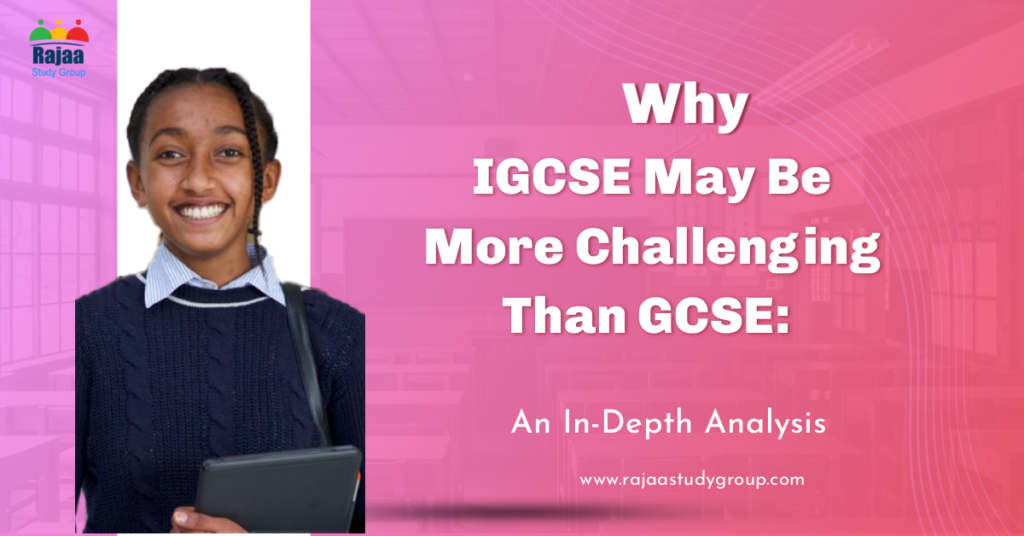Table of Contents
ToggleUnderstanding the CBSE, ICSE, IGCSE, and IB Boards
Education is a fundamental aspect of our lives, and choosing the right board for your child’s education is a crucial decision. In today’s diverse educational landscape, there are several options available, each with its own unique features and curriculum. Four prominent boards that are widely recognized and followed across the globe are CBSE (Central Board of Secondary Education), ICSE (Indian Certificate of Secondary Education), IGCSE (International General Certificate of Secondary Education), and IB (International Baccalaureate).
The CBSE board, established by the Government of India, is known for its comprehensive syllabus that focuses on core subjects while promoting analytical thinking and problem-solving skills. It follows a uniform curriculum across all affiliated schools in India.
On the other hand, ICSE is a private board that emphasizes a broader range of subjects, including arts and humanities. It offers students an in-depth understanding of each subject through detailed study materials and encourages critical thinking.
For those seeking an internationally recognized qualification, IGCSE provides a globally accepted curriculum developed by the University of Cambridge International Examinations. It offers flexibility in subject choices and assessments to cater to individual learning preferences.
Lastly, the IB board offers a holistic approach to education with an emphasis on developing well-rounded individuals. Its curriculum focuses on intellectual curiosity, intercultural understanding, and community service. The IB program is highly regarded by universities worldwide due to its rigorous academic standards.
Understanding the key features of these boards can help parents make informed decisions about their child’s education journey. Each board has its own advantages and caters to different learning styles and aspirations. By exploring their unique offerings, parents can choose the most suitable board for their child’s overall development and future success.
CBSE board, ICSE board, IGCSE board, IB board, educational boards in India
Education is the foundation of a prosperous nation, and in India, there are several educational boards that play a crucial role in shaping the academic landscape. Among them, the CBSE board, ICSE board, IGCSE board, and IB board are widely recognized for their rigorous curriculum and comprehensive approach to learning. Each board has its own unique characteristics and advantages, catering to the diverse needs and aspirations of students across the country. In this introduction, we will explore these educational boards in India and highlight how they contribute to enriching the educational experience for students.
Curriculum and Syllabus: How Do They Differ?
When it comes to education, the terms “curriculum” and “syllabus” are often used interchangeably. However, it is important to understand that they have distinct roles and functions in the realm of teaching and learning.
The curriculum refers to the overall framework of knowledge, skills, and competencies that students are expected to acquire during their educational journey. It encompasses a broad range of subjects and disciplines, as well as the goals and objectives of the educational institution. In other words, it outlines what students should learn and achieve throughout their academic experience.
On the other hand, a syllabus is a more specific document that provides detailed information about a particular course or module within the curriculum. It serves as a roadmap for both teachers and students, outlining the topics to be covered, learning outcomes, assessment methods, required resources, and any additional guidelines or expectations.
While both curriculum and syllabus play crucial roles in education, they differ in terms of scope and specificity. The curriculum sets the broader educational framework for an institution or program, while the syllabus focuses on individual courses or modules within that framework.
Understanding this distinction is essential for educators as it allows them to effectively plan their lessons and ensure alignment with both the overall curriculum goals and specific course objectives. Likewise, students benefit from having clear expectations outlined in syllabi that guide their learning journey.
In conclusion, while closely related concepts in education,the curriculum provides an overarching structure for learning,while a syllabus offers detailed guidance for specific courses.
Both are vital components in ensuring effective teaching and meaningful student engagement throughout an academic program.
In today’s educational landscape, there are several different curricula available to students. The CBSE, ICSE, IGCSE, and IB curricula are among the most well-known and widely adopted options. Each curriculum has its own unique approach to education, offering students a diverse range of learning experiences. Understanding the differences between these curricula is crucial for parents and educators when making decisions about their child’s education. In this article, we will explore the key features and benefits of each curriculum, helping you make an informed choice that best suits your child’s needs and aspirations.
– Core subjects and electives offered by each board
CBSE subjects offered, ICSE subjects offered , IGCSE core subjects , IB elective subjects
In today’s education system, students have the opportunity to choose from a wide range of subjects offered by different boards. The availability of core subjects and electives plays a crucial role in shaping their academic journey and future career paths.
The Central Board of Secondary Education (CBSE) offers a comprehensive list of subjects that cater to the diverse interests and aspirations of students. From core subjects such as English, Mathematics, Science, and Social Science to elective subjects like Computer Science, Economics, Psychology, and Fine Arts, CBSE ensures a well-rounded education that prepares students for various fields.
On the other hand, the Indian Certificate of Secondary Education (ICSE) board provides a balanced curriculum with a focus on holistic development. Along with core subjects such as English Language, Mathematics, Science (Physics, Chemistry, Biology), and History/Civics/Geography (HCG), ICSE offers elective subjects like Computer Applications, Economics, Environmental Science, Art/Performing Arts.
For those opting for an international curriculum like the International General Certificate of Secondary Education (IGCSE), there is an emphasis on core subjects including English Language/Literature/Mathematics/Science/Languages/Humanities. These core subjects provide a strong foundation for further studies or career choices.
The International Baccalaureate (IB) program takes an interdisciplinary approach by offering six subject groups: Studies in Language and Literature; Language Acquisition; Individuals and Societies; Sciences; Mathematics; and The Arts. Within these groups are various elective options that allow students to explore their interests in-depth.
It is important for students to carefully consider their strengths and interests when selecting their preferred board as each board offers unique subject combinations. By choosing the right combination of core subjects and electives offered by each board, students can pave their way towards academic success while nurturing their passion for learning.
– Focus on theoretical knowledge vs. practical application
CBSE theory-based approach , ICSE emphasis on practical learning , IGCSE balance between theory and application , IB focus on critical thinking skills
In the realm of education, there has always been a debate surrounding the balance between theoretical knowledge and practical application. Different educational systems have varying approaches to this issue, with some favoring a theory-based approach while others emphasize practical learning. The Central Board of Secondary Education (CBSE) in India, for example, places a strong emphasis on theoretical knowledge, whereas the Indian Certificate of Secondary Education (ICSE) promotes practical learning. On the other hand, the International General Certificate of Secondary Education (IGCSE) strives to strike a balance between theory and application. Additionally, the International Baccalaureate (IB) program focuses on developing critical thinking skills through its curriculum. In this section, we will explore these different approaches and their implications for students’ overall education and future success.


